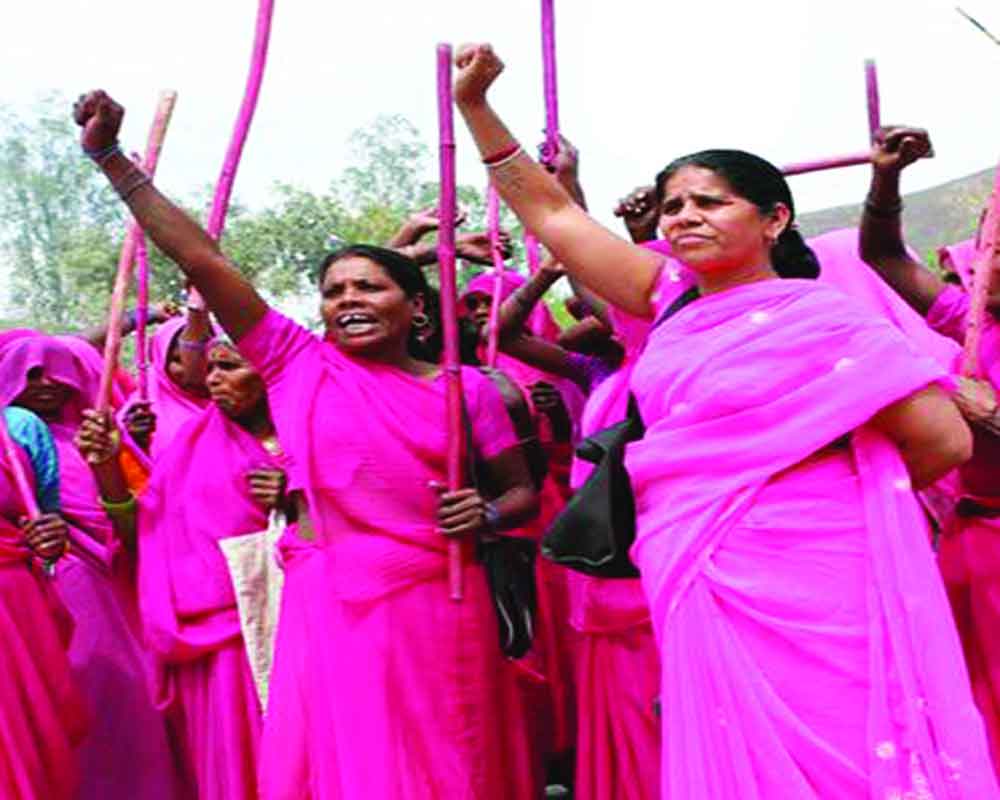Almost one in three women has been subjected to either intimate partner violence, non-partner sexual violence, or both
If a woman with a voice is a strong woman, then women must continue to raise their voice. Women today face breach of bodily integrity, discrimination in voting rights, legal contracts, and work; and unequal access to opportunities of education and health. Devastating evil of sexual violence too persists.Agency, the quintessence of empowerment, cannot be manifested in an environment characterised by violence and infringement of rights. Despite several initiatives, freedom from sexual violence remains elusive.
According to WHO estimates, almost one in three women (15 years or older) have been subjected to either intimate partner violence, non-partner sexual violence, or both at least once in their life. Violence against women (VAW) is a social mechanism that is used to relegate women into subservient positions and curtail their already limited opportunities. It is intrinsically problematic as it is a violation of women’s basic human rights and dignity. As per UN Women, estimated global cost associated with VAW stands at US$ 1.5 trillion.
Despite adoption of the UN Declaration of Elimination of Violence against Women (1993) and inclusion of sub-goals related to the same under Goal 5 (Gender Equality) of Sustainable Development Goals (SDG), this man-made pandemic still looms large. At present, it has been aggravated by the natural pandemic with UN Women terming intensification of VAW during COVID-19 as ‘Shadow Pandemic’.
Pervasiveness of VAW in its different forms - physical, sexual and psychological is a global phenomenon and persists across the different stages of their life-cycle, sometimes even preceding birth.
Female foeticide, a widespread reality, has resulted in several ‘missing girls’. According to State of the World Population Report (2020), there are about 142 million ‘missing females’ globally, more than double of the 1970 estimate of 61 million. In India, close to five lakh went ‘missing’ at birth each year during the period 2013-17. According to NITI Aayog’s SDG Report (2019), Sex Ratio at Birth (SRB) is at 896 (per 1000 males), below the desired target of 954; with Delhi, Uttarakhand, and Haryana emerging as the three worst performers (SRB below 860).
Relatedly, Economic Survey 2017-18, highlights another aspect of discrimination - son-meta preference, which manifests itself in a skewed sex ratio of last child and estimated the number of ‘unwanted girls’ in India at 21 million.
Among the older age groups, Human Development Report (2020) suggests that percentage of females (15 years and above) who ever experienced intimate partner violence were about 31 per cent for South Asia and Sub-Saharan Africa each, 27.9 per cent for Europe and Central Asia, and 23.8 per cent for Latin America and Caribbean. Meanwhile, within India, according to NITI Aayog’s SDG Report (2019), 33.3 per cent of Indian married women (15-49 years) had ever experienced spousal violence. For the worst performing States, it was above 40 per cent.
Similarly, proportion of sexual crimes against girl children to total crime against children stands at about 60 per cent; the proportion being more than 100 per cent for worst performing states. Also, crime against women per one lakh of female population at all-India level is 57.9 per cent, with the rate being more than 85 per cent for worst performers. The National Crime Records Bureau data highlights that cases of crime against women registered in the country were over four lakhs in 2019.
The present pandemic has also corroborated that women are disproportionately adversely affected at times of crisis. During 2019 COVID lockdown, a surge in reporting of VAW especially domestic violence was witnessed both in India and globally. This can be primarily attributed to direct interaction with the abuser in small household dwellings; reverse migration, as witnessed in India with the return of the abuser; and restricted mobility. Moreover, there also exists an element of differential vulnerability wherein women belonging to minority groups; indigenous groups; rural communities; children; female migrants; disabled women; and those in regions of conflict or climate change, are at times more exposed to VAW.
Taking into consideration the significant challenges posed by VAW, the Indian government has put in place several mechanisms to ensure the safety of girls and women.
Going ahead, policy makers should focus on a collaborative approach, which includes NGOs and civil society at large in understanding the genesis of the problem, raising awareness and putting in place educational curriculums especially for children and adolescents that aim towards reducing VAW by bringing about behavioural and attitudinal changes from an early age. There is also need to work together with communities to raise awareness and work towards eradication of any customs or traditions that make the process of reform inert and curtail efficacy of policy measures aimed towards complete elimination of VAW.
In addition, strengthening data collection pertaining to different forms of violence to facilitate policy making is also critical. Last but not the least, gendered consequences of the pandemic need to be taken into consideration to ensure that both response as well as recovery mechanisms are gender sensitive.
Simrit is the Principal, Shri Ram College of Commerce, and Professor of Economics and Public Policy, University of Delhi. Sanchita is Research Scholar, the Faculty of Management Studies, University of Delhi. The views expressed are personal.


























